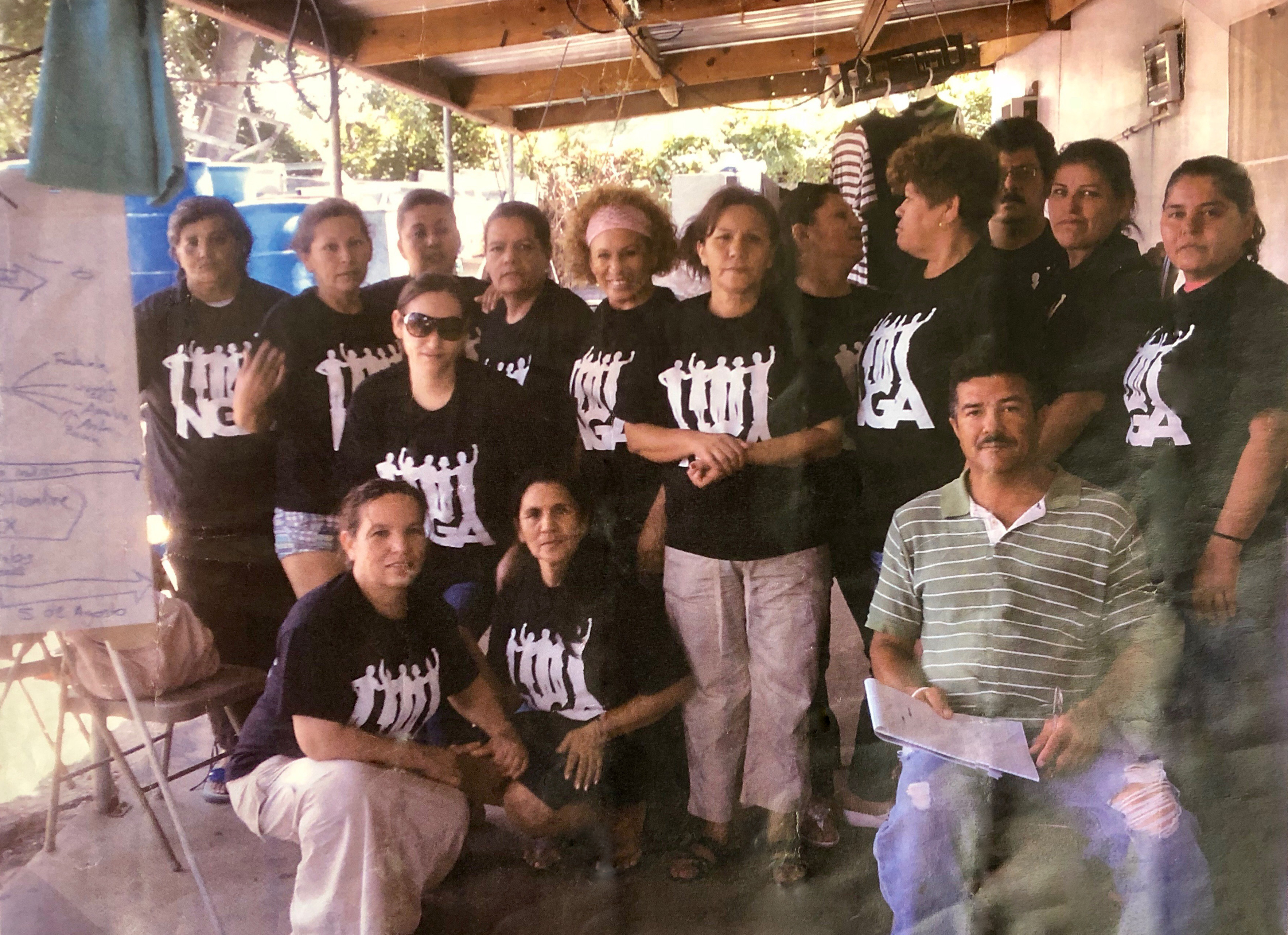
A conversation with Chayito
By C.D.
The Seafood Workers Alliance is a group made up of seafood industry workers in Louisiana who are organizing across the rural areas of the state to address the many injustices they face in the industry, such as forced labor, unfair wages, and workplace safety issues. These are the workers who produce and process the seafood that makes Louisiana famous, and they are making a call to allies and fellow workers to join them in this fight. Below are excerpts from a conversation with the vice-president of the Alliance, who goes by Chayito.
Where are you from and how long have you been working in the United States?
I’m from Sinaloa, Mexico. I came to the United States, invited by a friend who told me about a job at a crawfish plant in Baton Rouge. I have been working here for 11 years as a guest worker.
How did you get to know the Seafood Workers’ Alliance?
Eleven years ago I met organizers from the Guest Worker Alliance. I had a problem at the crawfish plant I was working at, where the workers wanted to be paid more. They wanted 25 or 50 cents more per hour. I met two organizers who were helping the workers in their struggle. The boss was very upset, he disrespected the organizers. The boss got so angry he cut off the electricity, disrespected the workers, and sent for a truck to return all of the workers to Mexico. I decided to stay with a friend because I had a child in the hospital, and I had to work to pay for the clinic expenses. I started working in a taqueria and made tamales a few days a week. Here I was completely lost. We could not speak the language. It was difficult, but I endured, and I left before the visa expired.
After being in Mexico for a while, I wanted to come to work again. But when I went to hand over the copies of my passport to another company, a friend of my sister told me, “I can’t bring you because the company does not want those who have been involved with in organizing.” I started having problems again. I met another person who offered me another visa in Lafayette. The manager of that plant had problems with me, and he insulted me. As we are organized, [the bosses] are also organized. They all know each other.
I returned to Baton Rouge and worked for another company. During my time there I was living in a house with co-workers. It was a company house, and we had to pay rent to the company. The house was very dirty, with rats and cockroaches. We were 23 people living there with only three bathrooms and a kitchenette.
When I started I was not very involved with the movement. Now I am more involved because I started to know about other cases. The workers began to talk among ourselves and realize what was happening, and we began to organize to defend ourselves. I want to avoid these things that have happened to me and my coworkers. The Seafood Workers’ Alliance was formed two years ago, and I serve as vice president of the Alliance.
What are the conditions like for women in the industry?
The pay is not the same. Men are paid more. Of course there is sexual harassment. We have a task this year to find a way to raise awareness among people to make reports and not to remain silent about this issue. There are many women organizing.
What inspires you in this work?
It inspires me that more people are approaching us. We have managed to get people to support us. We have opened the doors for people to listen, to learn about the experiences of guest workers, and I’m very inspired because there is a lot of support amongst ourselves. We know it’s not easy, but we have to keep going.
What is a message you have for people who are trying to get organized in their industry?
Do not stay silent. There will always be a door that will open. You have to lose your fear. All human beings have rights no matter race, color, fat or skinny. We all have the right to work. We are not objects. We have dreams, and no one has the right to take them away.
We want to inspire allies to join the cause, inspire people who are from here, who have the will to support and the heart to support. We can all support, but I have seen that people like to ignore these issues. I want the people in power to be able to see how people are treated in the rural areas where the food that is eaten is processed. Where the people who process what they put in their mouths live. This food is made with tears, with bad working conditions. We have no protection. We want to inspire the people who support us to change the industry. Because when something is made with love, it will be healthy.
